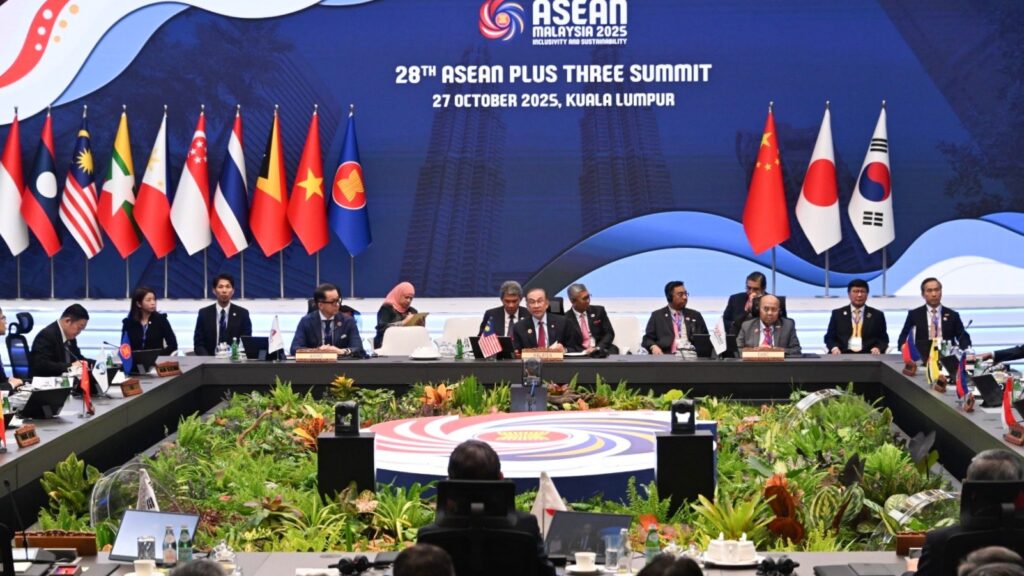
Singapore, October 27, 2025 – Mr. Yasuto Watanabe, Director/ CEO of the ASEAN+3 Macroeconomic Research Office (AMRO), delivered an assessment of the ASEAN+3 region’s economic outlook and path forward through regional integration at the 28th ASEAN+3 Summit held in Kuala Lumpur, Malaysia, today.
ASEAN+3 has demonstrated resilience, supported by robust domestic demand and strong export performance. Growth is expected to reach 4.1 percent in 2025, before moderating to 3.8 percent in 2026 as trade measures weigh on external demand.
To navigate an increasingly fragmented and uncertain global environment, Mr. Watanabe called for a renewed push toward deeper regional integration in the coming decade.
“ASEAN+3’s strong fundamentals provide a buffer, but they are not a shield,” he said. “A more integrated ASEAN would not only benefit the region—it would also create a more robust production network for the ASEAN+3 region and provide a more stable growth partner for the Plus-3 economies and the world.”
Mr. Watanabe noted that while ASEAN has made commendable strides in trade liberalization—tariffs are close to zero—intra-ASEAN trade has remained stagnant at just over 20 percent of total trade for decades.
“The way forward is to move beyond trade measures,” he added. “ASEAN needs a deliberate investment strategy built on two pillars: leveraging global value chains to accelerate domestic upgrading and supporting the internationalization of ASEAN firms.”
He emphasized that deeper ASEAN integration is not an alternative to global openness but a critical complement. “By broadening our sources of growth, we can strengthen the resilience of all ASEAN+3 economies,” Mr. Watanabe concluded.
The ASEAN+3 region comprises members of the Association of Southeast Asian Nations (ASEAN) and China; Hong Kong, China; Japan; and Korea. AMRO has attended the ASEAN+3 Summit as an Observer since 2021.
Read the full transcript of Mr. Watanabe’s remarks here.
About AMRO
The ASEAN+3 Macroeconomic Research Office (AMRO) is an international organization established to contribute toward securing macroeconomic and financial stability of the ASEAN+3 region, comprising members of the Association of Southeast Asian Nations (ASEAN) and China; Hong Kong, China; Japan; and Korea. AMRO’s mandate is to conduct macroeconomic surveillance, support regional financial arrangements, and provide technical assistance to the members. In addition, AMRO also serves as a regional knowledge hub and provides support to ASEAN+3 financial cooperation.
For more information and the full list of AMRO’s member economies, please visit the AMRO website.
